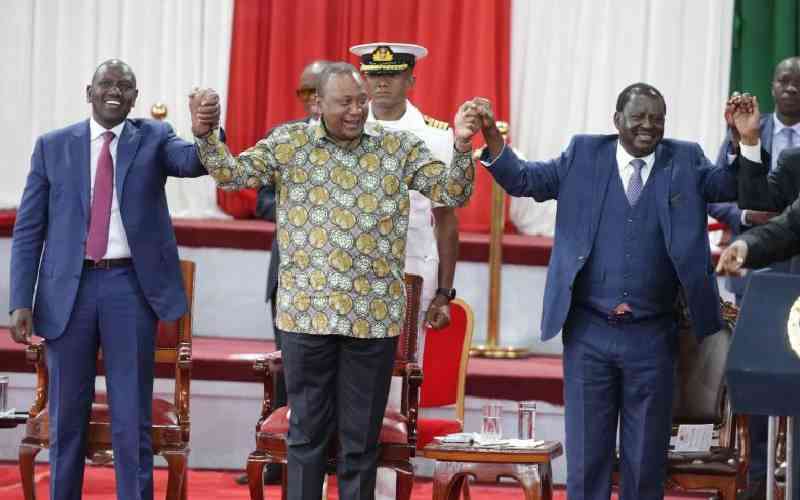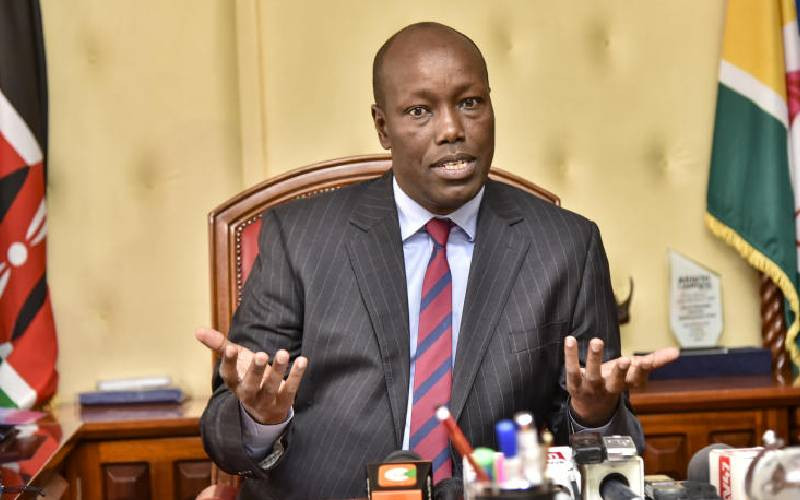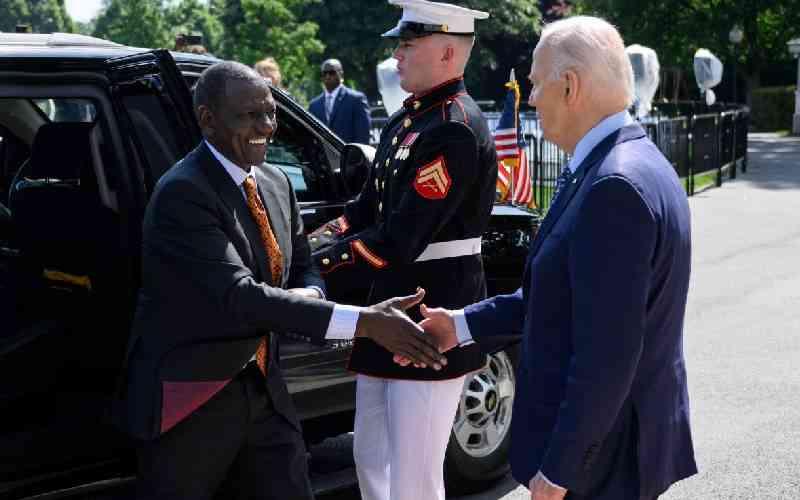A brief analysis of the history of Africa’s political conflicts reveals that between 1960s and 1990s, there were about 80 violent changes of government in 48 Sub-Saharan African countries. During the same period, many of these countries also experienced different types of civil strife, conflicts and wars.
The governments that took over from the colonists were expected to correct, among other things, natural resource allocation which was previously skewed in favour of the colonists. However, no sooner did the colonists leave than the new leaders began their own accumulation of wealth.
And because of their perceived ills against their countrymen, the neo-colonists surrounded themselves with their relatives and tribesmen in key sectors and public institutions to stem out any internal rebellion to their greed. And to deal cunningly with alternative political competitors, most of the same ruling elite reasoned that multi-party democracy will encourage “tribalism” or ethnicity which would lead to internal conflicts, disintegration and negation of their efforts at nation-building.
At independence, Kenyans were full of optimism from the prospect of socio-economic emancipation that was expected to be facilitated by our new local African leaders. This arose from the unity of our society during the fight for independence. The fight for independence was triggered and fuelled by the discriminative rule by the colonists which made our people believe that a united country was bound to succeed. This was even more strengthened when Kanu convinced Kadu to join its ranks so that a government of national unity could be formed at independence. This prospect was alive and Kenyans got to work.
However, the group that took over were split into two; those after self-accumulation and those for social justice for all and equitable resource allocation. The self-accumulation team won as they held the instruments of power. They surrounded themselves with their families, relatives and ethnic communities in key government positions.
When other communities discovered this, the ruling elite could no longer protect themselves alone. They then began the divide and rule system. Communities were set against each other, ethnic hatred was created, and opposition leaders were criminalised and branded negative stereotypes. The result was that the minority autocrats continued in power. A community could have one of their own appointed to position of authority as a figurehead just for public perception that all communities are represented in government.
At the onset of multiparty politics in Kenya, the ruling elite split the opposition and preserved weak electoral laws to continue sanitising their hold on to power through flawed elections. When the opposition realised this, they closed ranks and triumphed in a big way in 2002. However, a new trick for the neo-colonists arrived in town. The ruling elite quickly found their way into the NARC government and resuscitated the practice of deception in a merry-go round fashion. This involves cobbling up a community or communities of followers whom they promise to support in future so that they get their current support to hold onto the instruments of power. Once they have ascended to power, they edge their partners off key decision-making organs as they court other competitors.
And these are the clear examples; At independence, Jaramogi Oginga Odinga was offered the opportunity by the colonial government to form the first Kenyan government. But he refused to do so unless Jomo Kenyatta was out of jail. Kenyatta was released and to reciprocate this gesture by Jaramogi, Kenyatta made him his vice president.
However, a plan was hatched by the ruling elite to edge out Jaramogi. In his place, Kadu members were enticed to join hands to protect the ruling elite. First forward to 2002. Mwai Kibaki was handed power single-handedly by Raila Odinga. And what followed was there for all of us to see - Raila was edged out of government.
The last exposition of this trick was in 2007 when the ruling elite courted Kalonzo Musyoka with the promise that he was to be supported for presidency in the 2013 elections. What followed was the Uhuru for President Mantra by the ruling elite. The fact is that with instruments of power, the ruling elite cannot miss a new gullible player. Currently, it is William Ruto. The trick here is that by 2022, other leaders from Western Kenya or Nyanza or Lower Eastern will have been fatigued by being out of government and will be handy to replace Ruto for the same role.
The continuous mismanagement of the electoral process as well as the dominance of leadership by the big ethnic groups is a sure recipe for future instability if the system of government remains Presidential. This is because it has proven that votes do not count as a clique of technocrats manipulate the electoral process to install their preferred president.
There is need to review the governance structure of the country to give all groups equal opportunity of leading this country. This is the long-term solution. However, Jubilee can in the meantime solve the practices that undermine the democratic process. The electoral system and process should be reformed now to make it transparent and accountable.
This should involve all stakeholders. And the political merry-go-round deceptive trick of the ruling elite can be resolved by President Uhuru Kenyatta throwing in the towel and supporting someone else in 2017. He shall then go down the annals of history as a President who chose national good as opposed to perpetuating himself and his clique in power.
Uhuru should support someone else for the presidency in 2017 to free Kenya from the yoke of tribalism and emancipate the country of ethnic political chauvinism, even if it means that person is Deputy President Ruto. Ruto could then go ahead and lose to a more credible 2017 opposition Presidential candidate, which in my considered opinion is Raila Odinga.
This is the surest way to break this cycle of dogmatic political system, where tribal cobbling is the major factor. And if anyone believes that Uhuru’s votes will be lent to Ruto in 2022, the answer is a big NO. In fact, all the available empirical evidence attests in the negative. I rest my case.
Stay informed. Subscribe to our newsletter
 The Standard Group Plc is a
multi-media organization with investments in media platforms spanning newspaper
print operations, television, radio broadcasting, digital and online services. The
Standard Group is recognized as a leading multi-media house in Kenya with a key
influence in matters of national and international interest.
The Standard Group Plc is a
multi-media organization with investments in media platforms spanning newspaper
print operations, television, radio broadcasting, digital and online services. The
Standard Group is recognized as a leading multi-media house in Kenya with a key
influence in matters of national and international interest.
 The Standard Group Plc is a
multi-media organization with investments in media platforms spanning newspaper
print operations, television, radio broadcasting, digital and online services. The
Standard Group is recognized as a leading multi-media house in Kenya with a key
influence in matters of national and international interest.
The Standard Group Plc is a
multi-media organization with investments in media platforms spanning newspaper
print operations, television, radio broadcasting, digital and online services. The
Standard Group is recognized as a leading multi-media house in Kenya with a key
influence in matters of national and international interest.








